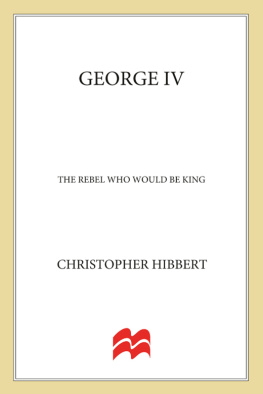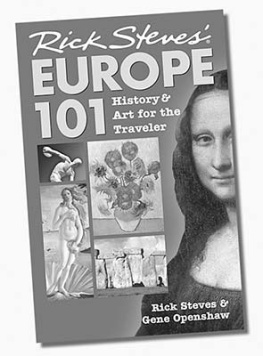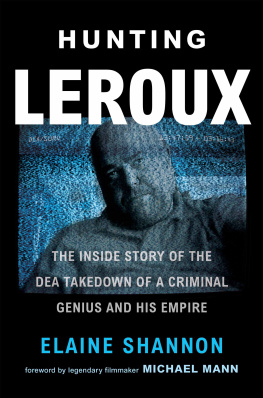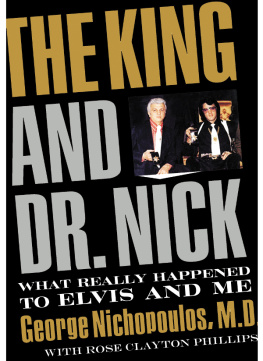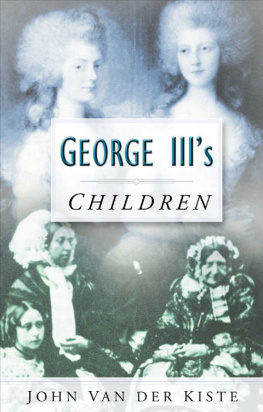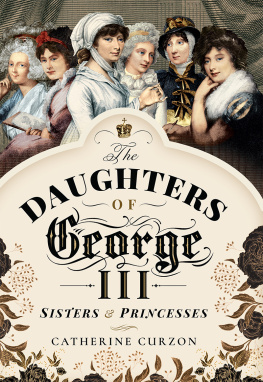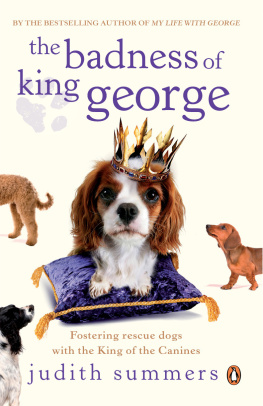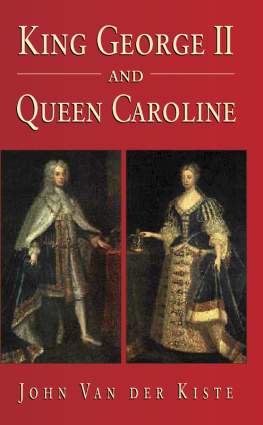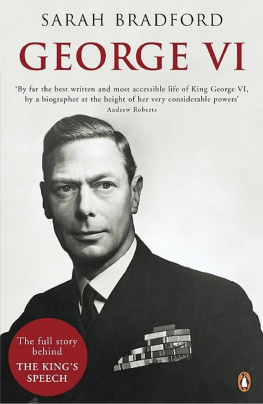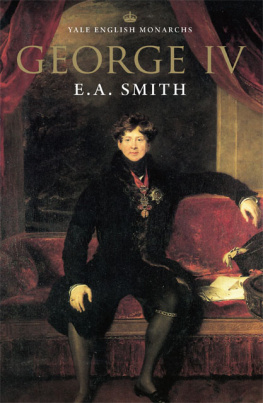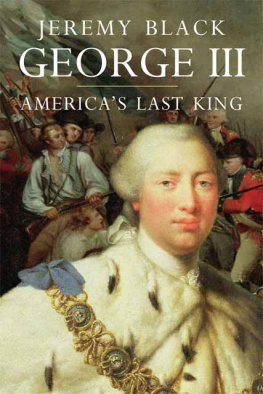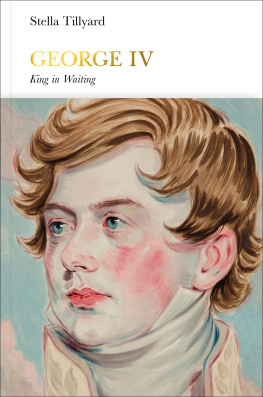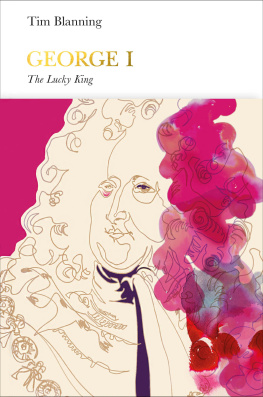Contents
Guide
CHRISTOPHER HIBBERT
George IV
The Rebel Who Would Be King

The author and publisher have provided this e-book to you for your personal use only. You may not make this e-book publicly available in any way. Copyright infringement is against the law. If you believe the copy of this e-book you are reading infringes on the authors copyright, please notify the publisher at: http://us.macmillanusa.com/piracy.
FOR
BILL AND PAM WYNNE WILLSON
AND
DAVID AND BARBARA LAURIE
Christopher Hibbert once claimed to an interviewer that his sole aim was to entertain and tell a good, accurate story. This extremely modest assessment of his own work has never been shared by reviewers or his millions of loyal readers around the world.
One of his signal meritsit is certainly his most original, declared the Spectator when George IV was first published, is to conceive of the interpretation of each life, once he has fully investigated and grasped it, as a breathing scale model of its own essential nature. Thus his biography of Garibaldi was appropriate solid opera, poignant and public Verdi; his life of Johnson, a cave of dark truths and imaginings shot through with rays of anarchy. A faithful submission to the subject and a narrative following exactly in its wake, that is the Hibbert recipe.
Christopher Hibberts achievements are all the more remarkable considering he already had two successful careers behind him when he became a historian. He was born in 1924, thus making him one of the generation of boys who became either men or ghosts on the battlefield. At nineteen, Hibbert interrupted his studies at Oxford to join the Army. Within a few months he was a platoon commander in Sicily, fighting from hill top to hill top as part of the Allied invasion. He was wounded twice and received the Military Cross in 1945.
Although tempted to remain in the Army, Hibbert returned to Oxford and completed his history degree. He married and became a country real estate agent. He discovered his talent for writing almost by chance. An Oxford friend invited him to contribute a TV column for his magazine. Four years later, in 1961, Hibbert established his reputation with his award-winning The Destruction of Lord Raglan, a history of the Crimean War. When his next book, a biography of Mussolini, became a number one bestseller, Hibbert proved his preeminence in the field.
Since then, Hibbert has written at an astonishing rate on subjects as diverse as the history of Rome and American Revolution. More than forty of his books remain in print. However, the jewel in his crown remains George IV. The eighteenth century scholar, Professor J. H. Plumb, declared it to be most perceptive study ever written of the self-destructive prince.
The prevailing view of George IV was entirely negative until Hibberts sympathetic biography revealed a gifted individual whose harsh upbringing and personal weaknesses conspired to ruin his potential. It was also the princes misfortune to fall into the hands of the brilliant but dissolute Whigs. The Duchess of Devonshire, Charles James Fox, and Richard Brinsley Sheridan were indeed a School for Scandal. But while they eventually grew into sadder and wiser middle-age, the prince never matured past adolescence.
George IVs pathological self-indulgence turned him into a buffoon, blinding critics then and now to his contribution towards Britains cultural heritage. Many of Londons most beautiful buildings owe their genesis to this much maligned king. As Hibbert argues, no other monarch cared so passionately about art and architecture.
Eschewing the obvious for the nuanced, Hibbert rescued George IV from the clowns corner to restore him to his true, tragic glory.
Amanda Foreman
T HIS biography of George IV is based largely upon his papers in the Royal Archives at Windsor, and I have to thank Her Majesty the Queen for graciously allowing me to make use of them. Most of the Kings correspondence is now generally available in the eleven volumes comprehensively and meticulously edited by Professor Aspinall to whom all students of the period will be indebted. In addition to this correspondence, I have been granted access to those papers which could not be released at the time Professor Aspinall was compiling his edition, or which concern topics (such as accounts and Queen Carolines affairs) outside its scope. I would also like to thank Sir Robin Mackworth-Young, Her Majestys Librarian, and Miss Jane Langton, Registrar of the Archives, and her staff, for their generous help and advice when I was working in the Castle.
Although the Royal Archives provide by far the most vital and abundant sources for the Kings life, there are numerous important manuscript sources elsewhere, and I am most grateful to the Duke of Devonshire for access to the Devonshire Collections; to the Marquess of Hertford for access to the Ragley Manuscripts; to the Earl of Halifax for use of the Hickleton Papers; to the Earl of Harewood for use of the Canning Papers; to the Earl of Crawford and Balcarres for use of the Crawford Muniments; to the Earl of Harrowby for use of the Harrowby Manuscripts; to Earl Fitzwilliam and the Trustees of the Wentworth Woodhouse Estate for allowing me to quote from the Wentworth Woodhouse Muniments; to the Earl of Denbigh for permission to quote from the Denbigh Manuscripts; to the Duke of Wellington for use of the Wellington Papers; to the Broadlands Trustees for the use of the Palmerston Papers; to the Trustees of Chequers for permission to consult manuscripts in the library at Chequers; to the Bishop and Dean of Worcester for allowing me to see the Hurd Manuscripts at Hartlebury Castle; to the Director of the Royal Pavilion, for permission to study and quote from various letters in his care; to Mrs Herv Coatalen for letting me see the correspondence of Sir Walter Farquhar and the Hook Manuscripts; to Lieutenant-Colonel H. E. Scott for use of some material from the Kings papers which are in his possession and for permission to quote from a manuscript in the Eldon Papers; to the Chairman and Secretary of Brookss for allowing me to consult the records of the club; and to the Directors of Messrs Coutts and Company for permission to use the archives of the bank.
For helping me find the relevant papers I want to thank Mr T. S. Wragg, the Duke of Devonshires librarian; Mr M. W. Farr, the Warwickshire County Archivist and his staff who have charge of the Ragley Papers; Major T. L. Ingram, Lord Halifaxs archivist; Miss Rosamund Campbell, the Earl of Harrowbys archivist; Mr A. R. C. Grant, the Duke of Wellingtons librarian; Miss Margaret Cash, Hampshire County Archivist, in whose care are the Palmerston Papers; Mr C. F. Penruddock, Secretary to the Chequers Trust; Mr L. W. Greenwood, librarian at Hartlebury Castle; Mr Derek Rogers of the Royal Pavilion; Mr J. M. Collinson of the Archives Department of Leeds City Libraries where the Canning Papers are now deposited; Mr John Bebbington who, as Sheffield City Librarian, has charge of the Wentworth Woodhouse Muniments; Miss M. V. Stokes, archivist of Coutts Bank; and Mr N. A. Ussher, the Earl of Harewoods agent.
I have also made use of the Fremantle Collection and the Goderich Papers at Aylesbury; the Finch Manuscripts at the Bodleian, Oxford; the Pretyman Papers at Ipswich; the Waller of Woodcote Manuscripts at Warwick; the Earl Grey Papers at Durham; the Fitzwilliam Manuscripts, the Brooke Records and Lord Dovers papers and diaries at Delapre Abbey; the Markham Papers at York; the Capell Manuscripts at Hertford; the Goulding Papers at Lincoln; and the Brougham Manuscripts in the Library of University College, London. I would, accordingly, like to express my thanks for their help to Mr E. J. Davis, the County of Buckingham Archivist; Mrs Mary Clapinson of the Department of Western Manuscripts, Bodleian Library, Oxford; Mr W. R. Serjeant and Miss Patricia James of the Ipswich and East Suffolk Record Office; Mr J. E. Fagg and Dr J. M. Fewster of the Department of Palaeography and Diplomatic in the Universit of Durham; Mr P. I. King, Chief Archivist to the Northampton and Huntingdonshire Archives Committee; Mrs N. K. M. Gurney, Archivist at the Borthwick Institute of Historical Research in the University of York; Mr Peter Walne, the Hertfordshire County Archivist; Miss J. A. Cripps of the Lincolnshire Archives Committee; and Mr Joseph W. Scott, librarian, University College, London.

